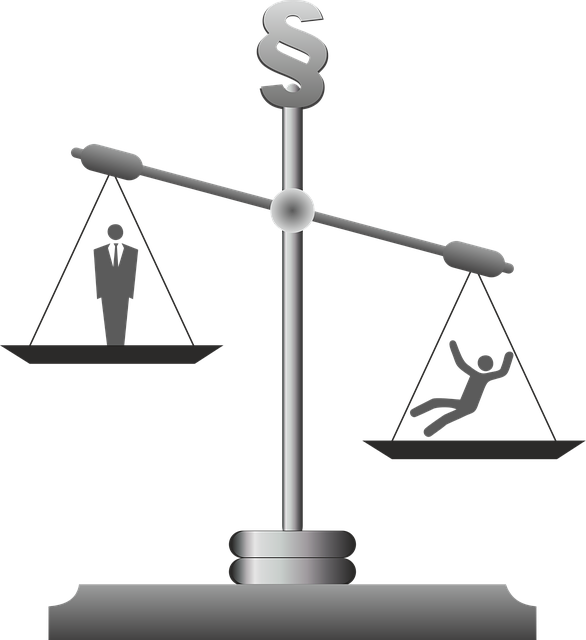Environmental crime trials require a delicate balance between holding defendants accountable and upholding their rights. Complex cases demand meticulous investigation, evidence gathering, and legal representation. Attributing liability is challenging due to the intricate nature of ecological damage and defenses used by corporations and individuals. Punitive damages spark debate over deterrence vs. punishment. Restorative justice models offer an alternative, focusing on rehabilitation, community impact, and collaboration for effective, just outcomes while respecting defendants' rights in criminal cases.
“Environmental Crime Trials delve into complex legal territories, where the intersection of ecology and criminal justice shapes defendant rights in criminal cases. This article explores a multifaceted approach to understanding these trials. We examine the legal framework governing environmental crimes, balancing due process with swift justice. It delves into challenges of liability attribution and the role of defensive strategies. Furthermore, it scrutinizes punitive damages as deterrents versus harsh punishments, while also highlighting restorative justice methods focusing on rehabilitation and community impact.”
- Environmental Crimes: Legal Framework and Defendant Rights
- Balancing Justice: Due Process in Environmental Cases
- Challenges in Attributing Liability: Proof and Defenses
- Punitive Damages: Deterrence or Harsh Punishment?
- Restorative Justice: Rehabilitation and Community Impact
Environmental Crimes: Legal Framework and Defendant Rights

Environmental crimes, a growing concern globally, are met with a robust legal framework designed to protect our planet. These cases, often involving corporate and individual defendants, navigate through complex laws aimed at preserving environmental integrity. The legal system guarantees specific rights for defendants in criminal cases, ensuring fairness and due process. One key aspect is the right to legal representation, allowing accused parties to build a robust defense strategy. This includes gathering evidence, questioning witnesses, and presenting arguments to counter the prosecution’s case.
The defendant’s right to a fair trial extends further, encompassing the ability to confront accusers and ensure testimony is accurate. In environmental crime trials, this may involve scrutinizing data, expert opinions, and government reports. Achieving extraordinary results in such cases requires attorneys to master these legal intricacies, protecting their clients’ rights while advocating for environmental justice.
Balancing Justice: Due Process in Environmental Cases

Ensuring justice in environmental crime trials requires a delicate balance between holding defendants accountable for their actions and upholding due process rights. In these complex cases, where white collar and economic crimes often involve corporate and individual clients, every step of the investigative and enforcement process must be meticulously handled. This includes gathering robust evidence, protecting against wrongful convictions, and ensuring access to legal representation for all parties involved.
The right to a fair trial is paramount, especially considering the significant consequences for both corporations and individuals. Defendants must be afforded the opportunity to present their defenses without undue interference or bias. Achieving this balance is crucial to maintaining public trust in the justice system while deterring future environmental crimes.
Challenges in Attributing Liability: Proof and Defenses

Attributing liability in environmental crime cases is a complex task due to the intricate nature of ecological systems and the often lengthy time frames involved. Defendants in these cases, whether individuals or corporations, often employ sophisticated legal strategies to protect their rights in criminal trials. One significant challenge lies in presenting concrete proof linking the actions of a particular defendant to the environmental harm. This is particularly tricky in white-collar defense cases, where the respective business activities may span years and involve numerous actors.
Jurors must carefully consider the evidence presented, examining the intent and knowledge of the accused. Defenses can include arguing that the harm was an unintended consequence or claiming that regulatory compliance was maintained, despite the damage. Balancing these defenses against the severity of environmental crimes is a delicate process, requiring both robust investigative methods and a thorough understanding of the respective business operations.
Punitive Damages: Deterrence or Harsh Punishment?

Punitive damages in environmental crime trials have sparked debate among legal experts and advocacy groups. While some argue that they serve as a powerful deterrent, others view them as excessive punishment that may infringe upon defendants’ rights in criminal cases. The primary concern is whether these damages, often substantial, are primarily intended to punish wrongdoers or protect the environment—or both. Proponents believe that severe financial consequences can deter businesses from engaging in environmentally harmful practices and force them to take greater responsibility for their actions.
However, critics contend that punitive damages may be overly harsh, especially when defendants have already faced significant legal repercussions like fines or imprisonment. They argue that such measures should focus on restitution and rehabilitation rather than punishing corporations with an unprecedented track record of environmental wrongdoing. Striking a balance between deterrence and punishment remains essential in ensuring justice while respecting the respective business interests and rights within the criminal justice system.
Restorative Justice: Rehabilitation and Community Impact

Restorative Justice models offer a promising approach to addressing environmental crime trials, focusing on rehabilitation and gauging community impact. Unlike traditional criminal justice systems that prioritize punishment, restorative practices aim to involve all stakeholders—defendants, victims, and communities—in resolving harm and reintegrating offenders back into society. This collaborative process not only ensures defendants’ rights in criminal cases are respected but also fosters a sense of accountability and healing.
By encouraging open dialogue and active participation, restorative justice initiatives promote understanding and reconciliation. In the context of white-collar and economic crimes, where individuals may have been driven by personal gain or lack of awareness, these practices can achieve extraordinary results. Offenders take ownership of their actions, repair relationships with affected communities, and learn valuable lessons, ultimately contributing to a more sustainable and just society.
Environmental crime trials pose unique challenges, from proving liability in complex ecosystems to balancing justice with defendant rights. As these cases navigate intricate legal frameworks, adopting restorative approaches alongside traditional punitive measures could foster better environmental protection and community rehabilitation. Understanding defendants’ rights while addressing the impact of environmental crimes is essential for achieving a just and sustainable future.






